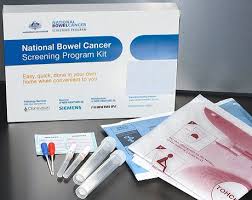This article was published and is reprinted with permission from Deborah Hutton’s website Balance. To see the original article, click here (https://balancebydeborahhutton.com.au/bowel-cancer-screening-kit/)
Australia has one of the highest rates of bowel cancer in the world. Bowel cancer screening, using the ‘faecal occult blood test’ (FOBT), is offered every two years to people between 50 and 74 years of age. The National Bowel Cancer Screening Program aims to reduce deaths from bowel cancer.

WHY HAS THIS PROGRAM COME ABOUT?
Bowel cancer screening is the best way of detecting bowel cancer early, because it often develops without symptoms. Most cancers detected through the Program have been in the earliest stages and we know that if detected early, up to 90% of cases of bowel cancer can be successfully treated.
However, our laid-back approach to health is reflected in poor uptake of this free screening offer. Experts agree that screening will save thousands of lives.
Once you reach 50 years of age, the Australian Government will send you a screening test in the mail. Recommendations also usually come from your General Practitioner. The screening test is a safe and non-invasive that you can complete at home.
In simple terms, the FOBT looks for traces of blood in a bowel motion. It involves taking samples from two bowel motions using a test kit
These are then analysed at a pathology laboratory, and if blood is detected, further tests might be conducted. Early detection might save your life!
LET’S LOOK AT WHAT IS INVOLVED IN THIS SIMPLE TEST.

The instruction sheet is easy to follow. A reply-paid envelope is supplied with the test kit, and the results are sent back to you (and your General Practitioner, if nominated) within two weeks.
In the event that blood is detected, it doesn’t necessarily mean cancer. About 1 in 13 people will have a positive result. This result can be caused by haemorrhoids, polyps, or inflammation of the bowel, so investigating the cause is the next step in most cases.
The cause of bleeding is found with a colonoscopy – a simple procedure to examine your bowel. A special preparation is given to empty the bowel, because the bowel wall needs to be clearly visible.
Statistically, 4 in 10 people who have a colonoscopy will have a clear result. About 5 in 10 will be found to have a polyp, which if removed may prevent cancer developing. About 1 in 10 people will be found to have cancer when they have a colonoscopy.
You are considered to have a significant family history of bowel cancer if a close relative under 55 years of age has developed bowel cancer, or if more than one relative on the same side of your family has had bowel cancer.
INTERESTINGLY, MORE THAN 75 PER CENT OF PEOPLE WHO DEVELOP BOWEL CANCER DO NOT HAVE A FAMILY HISTORY OF BOWEL CANCER.
There are two important aspects here.
In the first instance, reduce your risk of developing bowel cancer by wise food choices, especially enjoying adequate fibre every day, by giving up smoking, by drinking alcohol in moderation (or not at all), and by enjoying comfortable levels of exercise every day.
Secondly, avail yourself of the opportunity of free testing from the National Bowel Cancer Screening Program. The test has simple, easy-to-follow instructions that interrupt your day by a few minutes in your own bathroom.
Encourage your family and friends to do the same. We know that screening and early bowel cancer detection saves lives.
That’s what life is all about.

Leave a Reply